Do you regularly find yourself feeling tired, sluggish, less motivated and less productive then you would like to? Do you want some immediate and more importantly sustaining energy solutions so you can get into life with renewed passion?
Fantastic, you’re in the right place because in this post I am going to share with you 2 clear, fail-proof and 100% guaranteed legitimate ways you can get more energy in your life (minus the energy miracle product this or magic potion that) and without further ordo I present them to you:
- Eat More Energy
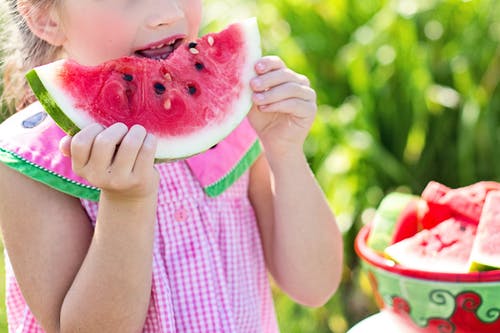
Ground-breaking, I know truly revolutionary stuff but before you roll your eyes give this some thought. Do you eat enough energy? There is so much focus on decreasing our calorie intake it’s like we’ve forgotten that this is the very thing which powers us! Calories = Energy. You’re not going to feel happy and healthy least of all energetic and motivated if you aren’t meeting your bodies need for energy because there is no avoiding the fact that we are heterotrophic organisms which means we cannot produce our own foods (energy) like autotrophs (plants and questionably unicorns?). We need to eat.
With all the ‘don’t eat’ this message (fat-free, carb-free, gluten-free, dairy-free, egg-free, sugar-free) I don’t blame anyone for being confused with what there is left to eat! Let us now simplify it to nutrition basics because amongst the dogma and opinion it is easy to lose sight of what matters. There are 3 macronutrients from which our bodies get energy to run our daily activities and this includes thinking, breathing, keeping your heart, liver and kidneys functioning (to name a few) not just your gym session either and they are Carbohydrates, Fat and Protein.
Preferentially under normal eating conditions when you are supplying your body with a mixed and varied diet your body will always use carbohydrate first as its source of fuel. After many long years of evolution this is the macronutrient that our human bodies have decided is the best fuel for us to run off. You can try to manipulate your body to run off fat or protein (for example by following a ketogenic diet) but because this requires a very low intake of carbohydrate far below the level we naturally eat in this post I am going to discuss energy needs from the point of view of consuming a diet where most of your energy is supplied by carbohydrates whilst meeting your nutritional needs for protein and fat. However, ultimately whatever way you choose to meet your body’s energy needs, be this primarily through carbs, fats or protein, the more important thing is that you are indeed meeting them.
How Do I Know If I Am Not Eating Enough Energy?
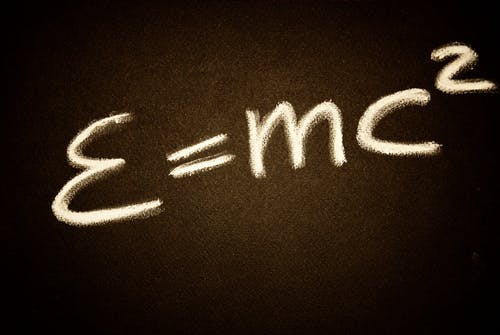
A few examples to get you brainstorming that may be indicative that you aren’t fuelling your body adequately include confusion over what to eat, reliance on coffee or other stimulants or artificially sweetened products to get you through the day, skipping meals (breakfast is common) or snacks, filling up on low calorie or low energy density foods (fruit and vegetables) or recent increases in the amount of activity you do without changing your food intake to meet these upped requirements.
Another risk is that you may be meeting your body’s daily need for energy but in a way that simply isn’t the best at providing consistent energy. Do you eat one or two large meals a day and that’s it? Do you wait until you are starrrrrving to eat? I can understand this one also with so much information out there on the benefits of fasting at the moment (I will write a post on this soon!) the thing is if you are waiting until your body is crying out for food before you eat then you’ve missed the boat, you’ve already been running off low energy for hours cutting yourself short in both your physical and mental abilities and performance. Think of it this way isn’t it much better to put fuel in your care BEFORE you use it, not after?
Food Tips to Improve Energy
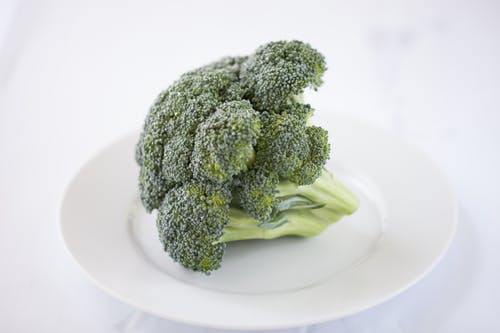

- Look at your meal patterns.
Eat regularly: this will depend on your work schedule but try having something to eat every 2-4hrs. Three main meals and three-four snacks spread out evenly over the course of the day is a good eating pattern to try as this will do wonders for maintaining your blood sugar and consequently energy and concentration levels.
- Look at the types of foods you eat.
Remember there are only 3 energy yielding macronutrients (discounting alcohol) carbs, fat and protein. Ask yourself if you are eating meals that are balanced, that meals which contain a mix of carbohydrate, fat and protein or are you eating meals that are filling and bursting with vitamins and minerals but not providing good levels of energy? I know salads and green leafy vegetables get a huge ‘healthy’ push however they are not the be all and end all of health first. First and foremost your body’s need for food is due to its need for energy and no amount of vitamins and minerals will compensate for a lack of calories.
Create balanced meals which provide you with carbs, protein and fats along with a good dose of vegetables and fruits. The current healthy food plate model encourages ¼ of your plate to be carbs (for example rice, pasta, bread, potato) ¼ to be protein (for example fish, meat, eggs, tofu) and the remaining ½ to be filled with vegetables. In addition to this basic meal plan add in a few serves of dairy or their alternatives and fruit across the day, the quantities of all being dependent on your specific needs as these recommendations are based off general guidelines and for any plan that is going to meet your unique needs and work best for you I highly encourage you see a dietitian because you truly won’t appreciate the difference until you experience it!
2. Meet Your Body’s Vitamins and Minerals Needs
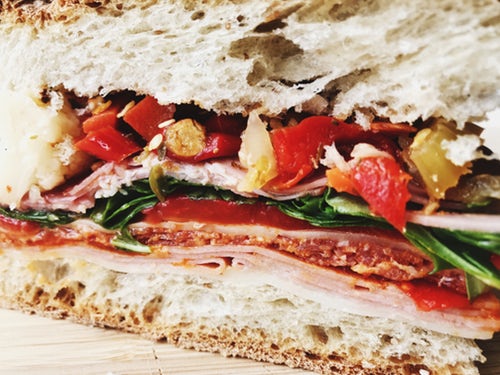
Now that we’ve got it cleared up that the first port of call in improving your energy levels is adjusting your energy intake and dietary patterns in order to run smoothly and happily and avoid hangry territory, the afternoon slump or long-term malnutrition let’s see what other nutritional components may be hindering your daily energy and vitality levels. Enter the vitamins and minerals…
Human metabolism and the pathways upon which the energy from the foods you eat is eventually liberated is a deeply involved process requiring a monumental array of substances and incredible coordination of events (for anyone who is not familiar with the masterpiece that is the Krebs Citric Acid Cycle and electron transport chain I encourage you to look it up and I challenge you to not feel a profound sense of awe and appreciation for all your body does in order to simply give you a little energy to continue breathing). While we understand well that the macros are key to providing us with energy it is also true that human metabolism depends on vitamins every step of the way from breakdown, digestion, absorption and utilisation within your cells to be able to do the thing you want and need to do and by definition these vitamins are compounds you need but cannot make therefore you must get them from the foods you eat.
It would be too grand a feat to describe each micronutrient involved in regulating and ensuring energy is provided as it should be to our cells within this post therefore I am going to give you just a little taste with a couple of examples, a vitamin and a mineral, that are amongst the more common causes of problems for people with respect to development of deficiencies. However, keep in mind for you it may be something completely different which is why I fully encourage you to work with a dietitian to ensure your unique situation and needs are being met. For now, we will look at…
Vitamin B12
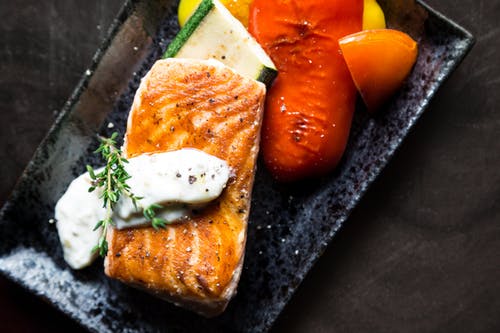
Vitamin B12 or Cobalamin is a vitamin needed in relatively small amounts due to its necessity as a component of about 12 enzymes your body produces. One such enzyme (Methylmalonyl-CoA mutase if you’re super interested) is required to fully metabolise fats (odd-chain fatty acids to be exact) so they can enter the last stages of the metabolic cycle (the Krebs Citric Acid Cycle) and make it possible for your body to liberate energy from them. Therefore, without this vitamin your body cannot produce this enzyme and without this crucial enzyme your body cannot carry out this important step which means you cannot produce energy in this way.
I read in a ‘self-help’ book for women recently the advice to take a B12 supplement or injection if you were feeling tired and had an important meeting or day at work that day to “get you through”. To give you some context this advice came after pages and pages of this book recommending eating very meagre and blatantly inadequate meals, for anyone who wants to achieve more in their day than breathe that is, which I sincerely hope is all women (and men). Reminder: your life is NOT for ‘getting through’ it is for being fully present and engaged. Life is not about quick fixes and instant energy hits so you can achieve well at this one important event, meeting or other every now and then because honey, your whole life is important. If you are low in B12 and it is affecting your energy levels to the point where you would benefit from a B12 supplement you need to look at changing your diet to get more B12 from your foods and if you are that low in B12 that you require an injection you definitely need to make some dietary changes because it takes a long time to develop such a severe deficiency (called pernicious anaemia) that you would need injections. Once you need B12 injections there is something hugely wrong with your dietary practices and if not it is indicative of an underlying problem (for example lack of intrinsic factor produced in your stomach which is necessary for correct absorption of B12 in your ileum which can be caused by atrophic gastritis, auto-immune destruction of your gut cells, reduced pepsin production or secretion of stomach acid) in which case you definitely need to see a dietitian.
Could I Be At Risk of Low B12?
Those most at risk of B12 deficiency are people following vegan diets as the active form of B12 is only found in animal foods. An interesting point to note also is that B12 is best absorbed if eaten in small amounts over the course of a day.
How Do I Know if I am Low in B12?
Low energy is an indicator, however a B12 deficiency is clearly not the only contributor to low energy therefore it is best to get blood tests to assess your levels. However, folic acid can mask a deficiency and folic acid in the diets of those most at risk (vegans) is high. Therefore, speak with a dietitian if you have concerns and they can help you get the right blood tests as well as come up with ways to meet your B12 needs.
Where Do I Get B12?
Animal products (meat, fish, eggs, milk, diary)
Fortified foods (Vegemite, soy or rice milk, textured soy protein, breakfast cereals)
Vitamin supplements
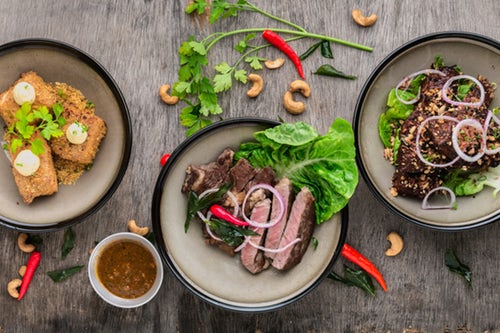
Iron
Iron is the central molecule of the haemoglobin molecule which is within your red blood cells and is what is responsible for transporting oxygen throughout your body to where it is needed as well as picking up and eliminating carbon dioxide by continuously transporting these gases to and from your lungs. If you are deficient in iron, you will feel fatigued due to the inability of your body tissues to receive an adequate oxygen supply. In children this can impair mental and motor development and in adults it certainly impairs our mental and physical functioning and capacity let alone joy and engagement in life.
Could I Be At Risk of Low Iron?
Those most at risk of low iron are again people who follow predominantly or wholly plant food diets (vegetarians and vegans), people with malabsorption issues, athletes as well as women who are menstruating, pregnant or breastfeeding.
How Do I Know if I am Low in Iron?
Low energy, fatigue, tiredness as well as paleness, breathlessness and inability to concentrate are indicators of iron deficiency. Yet because iron deficiency cannot be diagnosed from any of these symptoms alone it is important to get blood tests to assess your levels if you have concerns. However, there are many compounding factors which can mask an iron deficiency in bloodwork therefore it is best to see a dietitian who can give your doctor the exact blood tests necessary to ensure it is picked up (low serum transferrin, low transferrin saturation and decreased total iron binding capacity).
Where Do I Get Iron?
Animal products (the highest concentration of iron is found in red meat, fish, eggs and dairy)
Beans and Legumes
Nuts and seeds
Dried apricots
Supplements
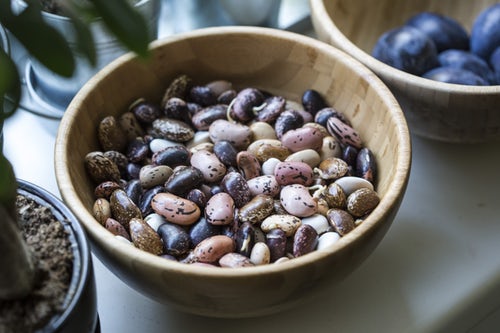
Some Additional Energy Replenishing Tactics
Beyond what you eat there are other things in life which you can do to ensure you are best supporting high energy levels including getting enough sleep (most of us need 7-8hrs), not overworking yourself and then there’s the question of whether you’re explicitly lacking energy or just demotivated and unenthused with the activities you are prioritising in your life which means making time for friends and family and human connections and other activities that lift you up and energise you is probably more important than changes in diet or sleep!
Take Home Messages

First and foremost, ensure you are eating enough energy. Funnily enough the number one reason for not having enough energy is not eating enough energy to have that energy.
Secondly ensure you are meeting your vitamin and mineral needs as these substances are what make it possible for your body to utilise the energy within the foods you eat.
Take care of yourself, get enough sleep and make sure you do things you love and which make you feel energised and alive because this is your life and no amount of good food will make you feel vitalised if your days are filled with empty tasks, chores (and people?) that don’t excite or inspire you.
Parting Words
I am going to leave you with some parting words of Oscar Wilde I just love. These are words you can take into your daily life to remind you how important food is to not just your physical and mental health but also your wellbeing. Food is not something to fight or fear, it is something to appreciate as a part of this magical world we live in.
After A Good Dinner One Can Forgive Anyone, Even One’s Own Relatives.
~ Oscar Wilde
With my whole heart I hope you found this information useful and inspiring.

Become Great. Live Great.
Bonnie.



